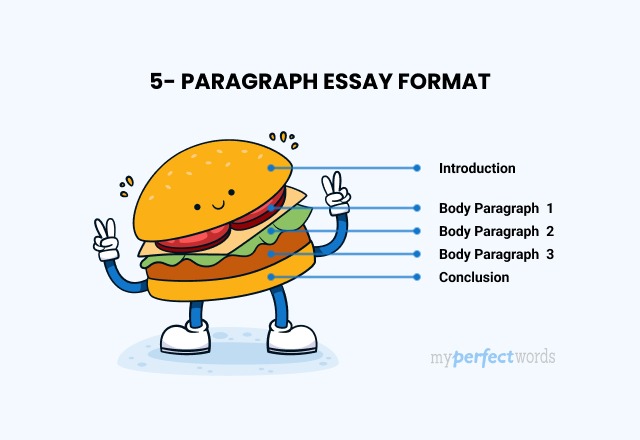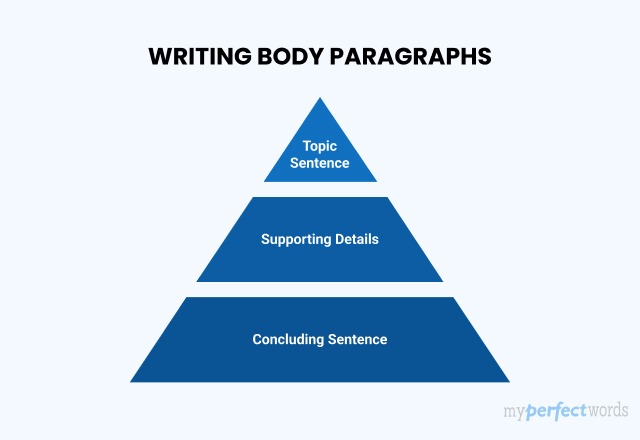What is a Thesis Statement?
A thesis statement is the foundational element of any academic paper or essay. It serves as a concise and clear expression of the main point or argument you intend to make in your writing.
Think of it as the compass that guides your reader through the intricate terrain of your essay.
A thesis statement sets the direction and focus for your entire paper, acting as a roadmap for your readers. It clearly states your argument, helps organize your ideas and sets expectations for what your paper will cover.
Here’s what a typical thesis statement outline looks like:
[Your main argument or claim]because[reason 1],[reason 2],and [reason 3].
How Long is a Thesis Statement?
The preferred length for a thesis statement in essay is 1-2 sentences. Ideally, it should be in between 30-40 words.
The thesis statement is usually stated at the end of the essay introduction, just before the first body paragraph.
Remember that a thesis statement is never a statement of fact. It is an important element that helps the readers understand what you discuss in your piece of writing.
Therefore, you need to make sure that you create an arguable statement and not factual one.
How to Write a Thesis Statement?
Starting a thesis statement can be a challenging task, but it's a crucial step in the writing process. A well-crafted beginning sets the tone for your entire essay or paper.
Here's a guide on how to start a thesis statement:
Understand Your Topic
Before you can begin your thesis statement, it's essential to have a clear understanding of your topic. Conduct thorough research and analysis to grasp the key concepts, issues, or questions related to your subject.
Identify Your Main Argument
Your thesis statement should capture the main argument or point you want to make in your essay. Ask yourself, "What is the primary message or claim I want to convey?" This will be the cornerstone of your thesis statement.
Craft a Concise Sentence
Start your thesis statement with a concise sentence that directly addresses your main argument. Avoid vague or generic statements and get straight to the point. Use clear and precise language.
Make It Debatable
A strong thesis statement is not just a statement of fact; it should be debatable. It should express a viewpoint or position that can be challenged or discussed. This encourages critical thinking and debate.
Avoid Ambiguity
It should leave no room for ambiguity. Be specific about your argument and the scope of your essay. Ambiguity can lead to confusion for your readers.
Tailor It to Your Essay's Purpose
Consider the type of essay you're writing. Is it an informative essay, argumentative essay, or analytical essay? Tailor your thesis statement to align with the purpose and goals of your essay.
Thesis Statement Examples For Different Types Of Essays
Thesis statement examples can be extremely beneficial to readers. These examples can help readers understand the structure of a thesis statement and how to write one that is clear, concise, and arguable.
Here are examples of thesis statements for different types of essays:
Argumentative Essay
An argumentative essay requires you to take a position on a debatable issue and provide evidence to support your stance.
Example:
"The government should implement stricter gun control laws to reduce the prevalence of mass shootings and enhance public safety." |
Persuasive Essay
A persuasive essay aims to convince the reader to agree with your point of view on a particular topic.
Example:
"Vaccination mandates are necessary to protect public health, prevent disease outbreaks, and save lives." |
Expository Essay
An expository essay involves explaining a topic in a clear and straightforward manner without expressing personal opinions.
Example:
"The Industrial Revolution marked a transformative era in history, bringing about significant technological advancements and socioeconomic changes." |
Analytical Essay
An analytical essay requires breaking down an idea or issue into its key components to understand its meaning and significance.
Example:
"In F. Scott Fitzgerald's 'The Great Gatsby,' the character of Jay Gatsby serves as a symbol of the American Dream's elusive and often illusory nature." |
Compare and Contrast Essay
A compare and contrast essay examines the similarities and differences between two or more subjects.
Example:
“While both online and traditional education have their merits, online learning offers greater flexibility and accessibility, making it a more practical choice for many students." |
Narrative Essay
A narrative essay tells a story or recounts an experience, often using descriptive language to engage the reader.
Example:
"My trip to [destination] not only introduced me to a new culture but also taught me valuable life lessons about resilience and the importance of embracing the unknown." |
Cause and Effect Essay
A cause and effect essay explores the reasons for an event or situation and the resulting consequences.
Example:
"The proliferation of social media has led to a decline in face-to-face communication skills among young adults, resulting in decreased interpersonal relationships and increased feelings of isolation." |
Descriptive Essay
A descriptive essay paints a picture with words, describing a person, place, thing, or event in detail.
Example:
"The serene beauty of a sunset over the ocean, with its vivid hues of orange and pink reflecting on the calm waves, creates a sense of tranquility and awe." |
Looking for more examples? Check out this blog on thesis statement examples for more information.
Research Papers
A strong thesis statement in a research paper is specific, precise, and arguable, setting the stage for your detailed investigation and discussion.
Example:
"Climate change policies should prioritize renewable energy sources over fossil fuels because they reduce greenhouse gas emissions, promote sustainable development, and enhance energy security." |
How Do I Know If My Thesis Statement Is Strong?
Determining the strength of your thesis statement is crucial for ensuring the clarity and impact of your essay or research paper. A strong thesis statement will guide your writing and keep your argument focused.
Here are some key indicators of a strong thesis statement, along with questions to help you assess its effectiveness:
Clarity | Does my thesis statement clearly convey my main argument? |
Specificity | Does my thesis statement focus on a specific aspect of the topic? |
Debatability | Can my thesis statement be argued against? |
Conciseness | Is my thesis statement brief yet comprehensive? |
Alignment with the Paper | Does my thesis statement match the content and purpose of my paper? |
If you can answer yes to the questions above, your thesis statement is likely strong and effective.
Tips for Writing a Compelling Thesis Statement
Creating a compelling thesis statement is essential for a successful essay. Here are some valuable tips to help you craft a strong and engaging thesis statement:
- Be Clear and Concise
Your thesis statement should be clear and to the point. Avoid vague or ambiguous language. Clearly state the main argument or point you intend to make in your essay.
- Make It Specific
A strong thesis is specific and focused. It should address a particular issue or question, avoiding overly broad statements that lack depth and precision.
- Be Debatable
Develop a thesis statement that presents an argument or position that can be debated or challenged. It should not be a statement of fact but rather an assertion that invites discussion and analysis.
- Tailor It to Your Audience
Consider your target audience's interests and expectations. Tailor your thesis statement to address their concerns and engage their curiosity.
- Reflect the Essay's Purpose
Your thesis statement should align with the purpose of your essay. Whether your goal is to inform, persuade, analyze, or compare, your thesis statement should reflect this purpose.
- Avoid Clichés
Strive to make your thesis statement original and engaging. Avoid using clichés or statements that have been overused. Aim for a fresh perspective on your topic.
In conclusion, crafting a compelling thesis statement is an essential skill, whether you're a student or a professional. A well-crafted thesis statement sets the tone for your entire piece, guiding your readers and keeping your writing on track.
Remember the key characteristics of a strong thesis statement: clarity, specificity, debatability, and conciseness. These attributes will help you create a thesis statement that captivates your audience and effectively conveys your main argument.
If you ever need assistance with your writing assignments or looking for someone to 'do my essay online', don't hesitate to reach out to MyPerfectWords.com.
Our professionals will write a perfect thesis statement to help you improve your grades. Contact us now and make your academic life easy.


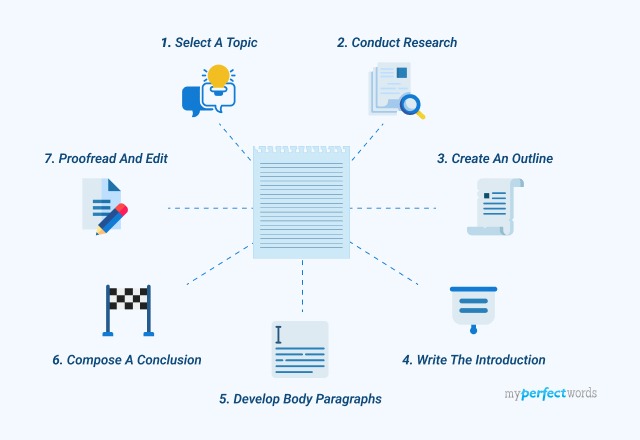

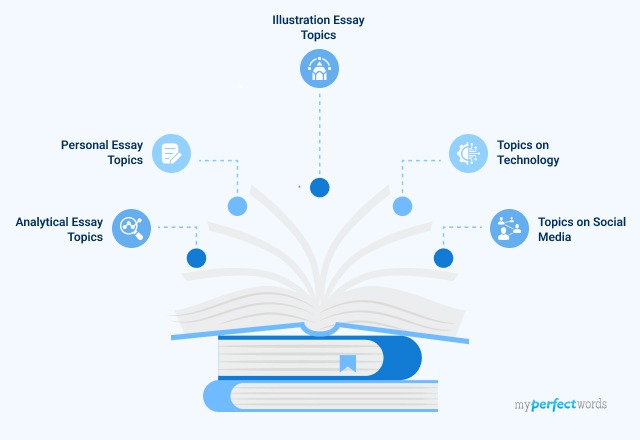


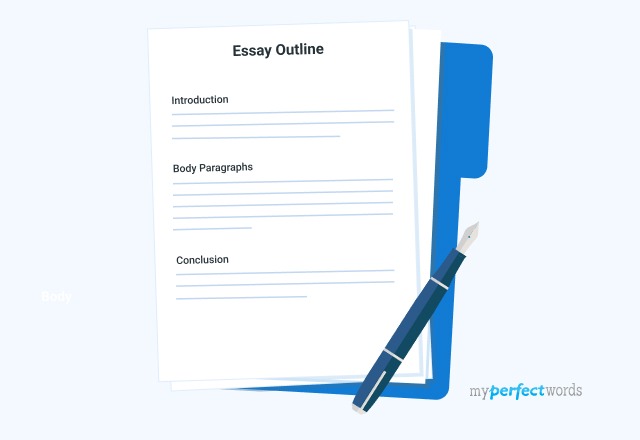

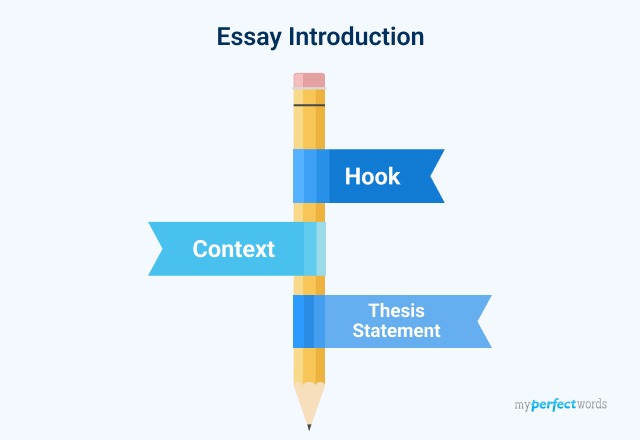

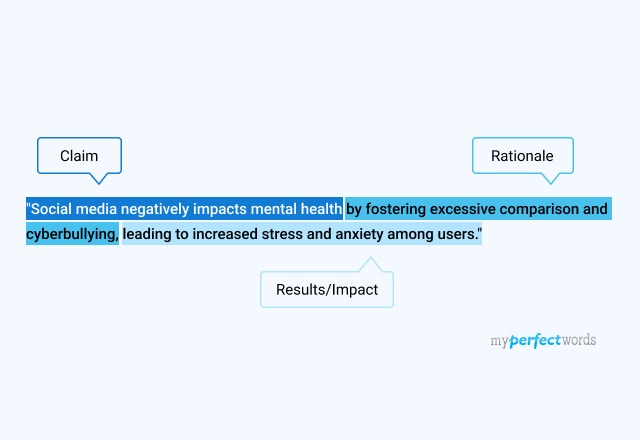






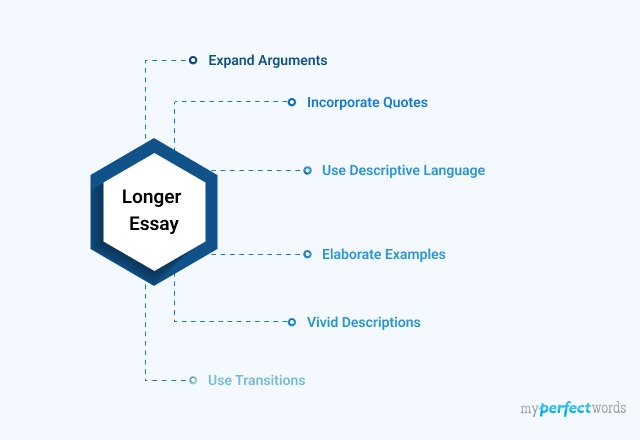

-9261.jpg)
